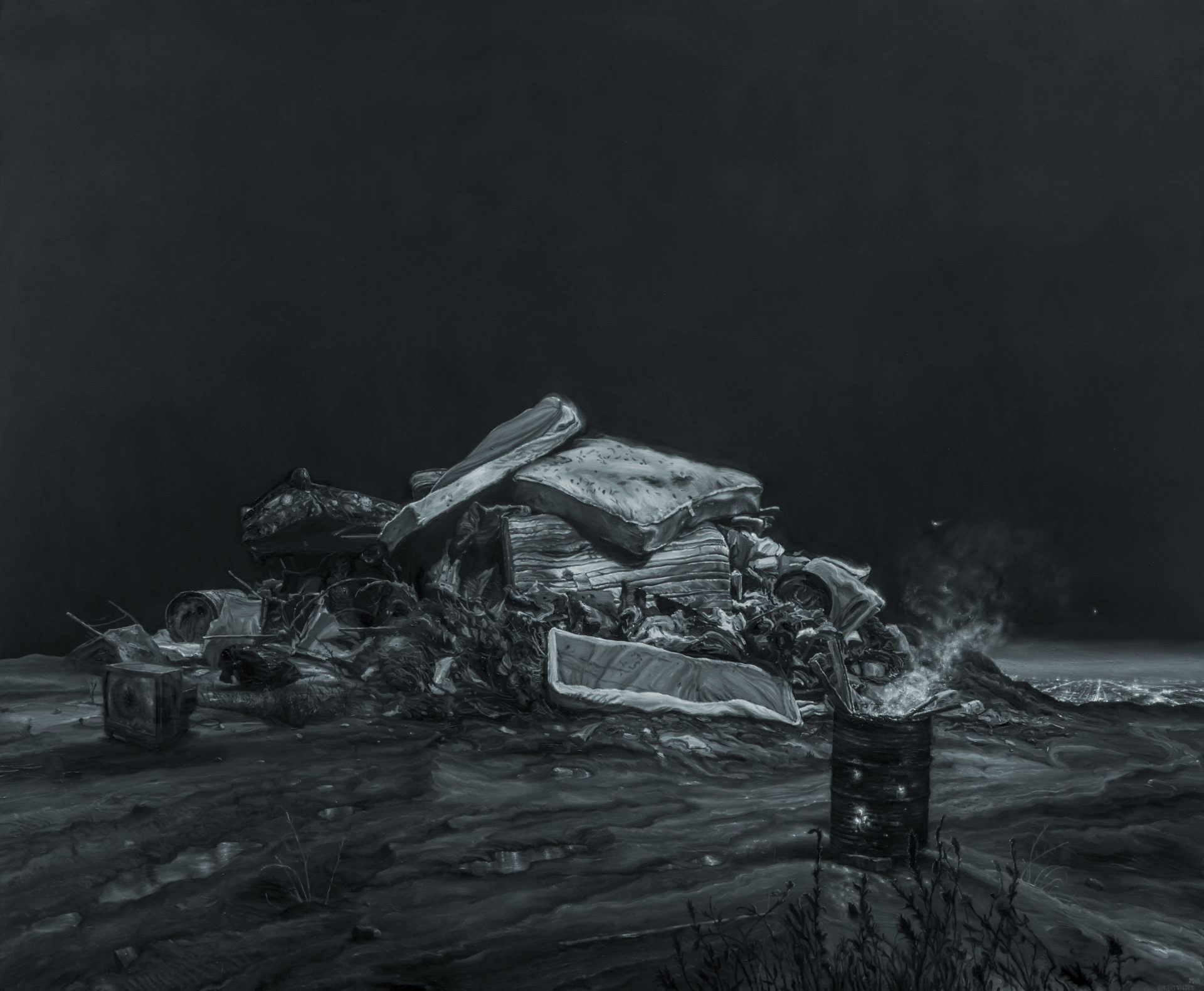
Vincent Valdez: The City
(July 17, 2018 – October 18, 2018)
CHAPTER 5: Additional Readings & Resources
Chapters
Prepared by Allison Myers, Andrew W. Mellon Fellow, Modern and Contemporary Art in 2018.
This list, prepared in August 2018, includes resources on themes and subjects surrounding Vincent Valdez’s The City, many of which the artist studied while creating the paintings.
Let’s Talk: Race in the United States
James Allen, ed. Without Sanctuary: Lynching Photography in America. Santa Fe, NM: Twin Palms Press, 2000.
A collection of historical photographs and postcards of lynchings from 1876-1950. Though painful, it serves as a visual record of the deep history of racial violence in the United States.
Eduardo Bonillo-Silva. Racism without Racists: Color-Blind Racism and the Persistence of Racial Inequality in the United States. 4th ed. Lanham, MD: Rowman & Littlefield, 2013.
A sociological analysis of the ways racism imbues contemporary society beyond the visible violence of hate groups.
Jeff Chang. Who We Be: A Cultural History of Race in Post-Civil Rights America. New York: Picador, 2016.
A cultural history of race relations and multiculturalism in the United States as told through visual culture.
Chicano! A History of the Mexican-American Civil Rights Movement. Dir. Hector Galan. Washington DC: PBS Productions, 1996.
A powerful documentary on the Chicano movement from 1965-1975, which later appeared as a book by Francisco Rosales.
Klanwatch Project of the Southern Poverty Law Center. Ku Klux Klan: A History of Racism. 6th ed. Montgomery, AL: The Southern Poverty Law Center, 2011.
The Southern Poverty Law Center is a central resource for information on hate groups as well as social justice.
Nicholas Villanueva Jr. The Lynching of Mexicans in the Texas Borderlands. Albuquerque: University of New Mexico Press, 2017.
This book examines the extensive lynching of Mexicans in early twentieth century Texas and offers detailed accounts of the lives of victims.
Crusade for Justice; the Autobiography of Ida B. Wells, Ed. by Alfreda M. Duster. Chicago: University of Chicago Press, 1970.
The autobiography of the African American journalist who led the anti-lynching movement in the U.S. in the 1890s.
Artists and Writers Respond
A Tribe Called Quest. “We the People.” We Got It from Here… Thank You 4 Your Service. New York: Epic Records, 2016.
Politically-charged and produced in the wake of the recent presidential election, a hip-hop track that denounces intolerance.
James Baldwin. Notes of a Native Son. Boston, MA: Beacon Press, 1955.
A collection of auto-biographical essays that reflect on the experience of being black in America, written during the dawn of the Civil Rights movement.
Junot Díaz. Drown. New York: Riverhead Books, 1996.
Short stories that reflect on the American Dream and the experiences of Dominican immigrants in the United States.
Chris Hedges and Joe Sacco. Days of Destruction, Days of Revolt. New York: Nation Books, 2012.
A graphic novel that investigates the connections between poverty and race across different segments of American society.
Los Hermanos Bañuelos. “El Deportado.” Corridos & Tragedias de la Frontera. El Cerrito, CA: Arhoolie Records, 1994. [song] A Mexican-American corrido that tells of the sacrifices and injustices faced by Mexican immigrants in the United States.
Claudia Rankine. Citizen: An American Lyric. Minneapolis, MN: Graywolf Press, 2014. [poetry] Merging poetry, prose, and visual images, an investigation into the many ways racism and microaggressions pervade daily life and affect our sense of who belongs.

